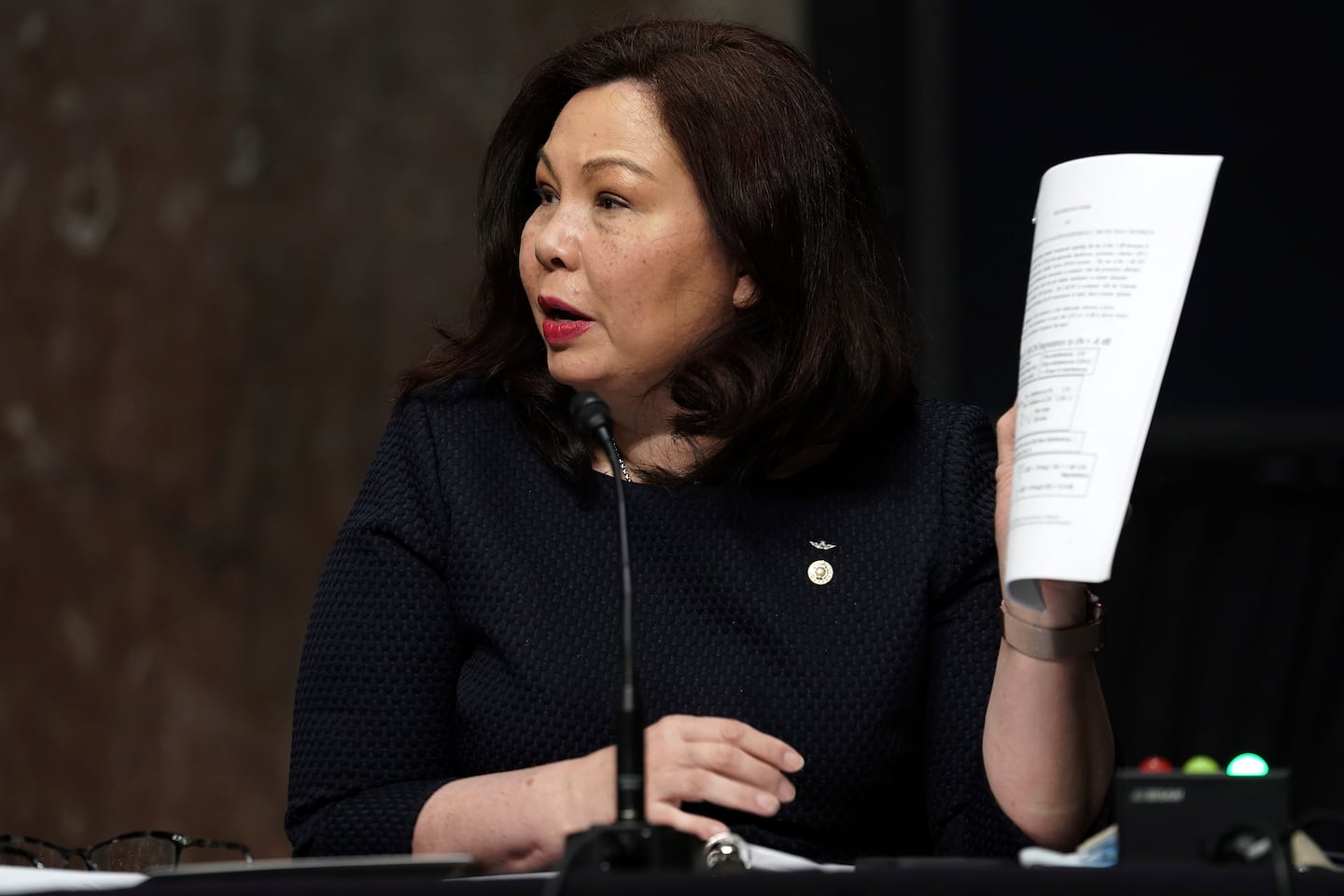Asian Americans wield their political power for more representation in Washington

Frustrated with the White House’s slow movement, Sen. Tammy Duckworth (D.-Ill.), the first Thai American woman elected to Congress, said she has repeatedly offered names to the White House of “many well-qualified” Asian Americans and Pacific Islanders for Cabinet positions. But those individuals in the AAPI community “never even got a phone call,” said the lawmaker, who was on the shortlist for vice president. As a result, Duckworth said Tuesday she would no longer support many of President Biden’s nominees.
“I’ve been talking to them for months and they’re still not aggressive, so I’m not going to be voting for any nominee from the White House other than diversity nominees,” she told reporters. “I’ll be a ‘no’ on everyone until they figure this out.”
“You know, I will vote for racial minorities and I will vote for LGBTQ,” Duckworth added. “But anybody else, I’m not voting for.”
There’s been a rise of anti-Asian hate crimes, an economic downturn that disproportionately hurt Asian Americans compared with White Americans and an array of challenges from immigrants from Asia. The country’s various Asian American communities are demanding to be put on equal footing with other groups.
“Right now is a perfect example of why it’s important to have high-level Asian American representation in this administration,” said John C. Yang, president and executive director of Asian Americans Advancing Justice, a civil rights organization based in D.C.
“To be clear, the Biden administration has been very good about reaching out to the community and making sure that they understand what the community’s concerns are, but that is still different from having someone that already knows what the community is facing,” he added.
Vice President Harris — the first person of Asian descent to occupy her office — traveled to Atlanta last week to speak out against anti-Asian violence.
“Racism is real in America,” she said. “And it has always been. Xenophobia is real in America, and always has been. Sexism, too,”
While it has embraced Harris’s sentiments, the administration thus far has fallen short of what many Asian American politicians, activists and public figures had been wanting to see from the White House: a seat at the most powerful table in Washington.
Duckworth said it is “insulting” that the White House pointed to Harris, who has a Black father and Indian American mother, when she complained about lack of representation.
“That is not something you would say to the Black Caucus, ‘Well, you have Kamala, we’re not going to put any more African Americans in the Cabinet because you have Kamala,’” she told reporters. “Why would you say it to AAPI?”
Neera Tanden, an Indian American, was on track to become Biden’s budget director, a Cabinet-level position, before she withdrew her nomination earlier this month after facing bipartisan opposition. Biden later said he looked forward to having Tanden serve in his administration, but he has not yet announced how exactly.
On Tuesday, Vivek H. Murthy, the son of Indian parents, was confirmed as surgeon general, a sub-Cabinet position. And Katherine Tai, who is Taiwanese American, became the first Asian American to serve as U.S. trade representative when she was confirmed last week.
Sen. Mazie Hirono (D-Hawaii), the first Asian American woman elected to the Senate, joined Duckworth saying she believed that voting no on non-diversity nominees was “a reasonable position” to get a commitment from the White House to have a Cabinet and senior White House positions more representative of America’s diversity.
“I shared the frustration that the AAPI community has that there’s not been a significant number of AAPIs at the Cabinet level,” Hirono told reporters. “I don’t think the trade representative is what the community understands (as) a Cabinet level.”
The White House made a commitment Tuesday specifically to the Asian American community.
“The President has made it clear that his Administration will reflect the diversity of the country. That has always been, and remains our goal,” White House press secretary Jen Psaki said in a statement. “The White House will add a senior level Asian American Pacific Islander liaison, who will ensure the community’s voice is further represented and heard.”
One reason the Asian American community wants more of a voice in Washington is because of the role it played in helping get Biden in the Oval Office. The president won the 2020 election because of a large coalition of voters backing him against President Donald Trump, a chief executive who spent the final year of his presidency blaming China for the coronavirus and referring to it with names like “Chinese virus,” despite the World Health Organization warning that doing so could lead to anti-Asian discrimination.
In Georgia alone, one of the states that helped Biden win the electoral college, The Post’s Amy B Wang previously reported that the Asian American Pacific Islander turnout in Georgia increased 91 percent over 2016, according to an analysis by the Democratic firm TargetSmart, with exit polls showing that AAPI voters backed Biden over Trump by a 2 to 1 margin.
“Without a doubt, we helped serve as that margin of victory, along with other young communities of color,” Georgia state Rep. Sam Park, the first Asian American Democrat elected to the Georgia General Assembly, told Wang.
Given the White House’s quick response following the protests of Duckworth and Hirono, voters from the Asian American community, the fastest-growing minority group in the country, may have an opportunity to further expand conversations about racism in America beyond the Black-White divide that dominates much of the discussion. How the White House responds to the demand for more representation and attention could be instrumental in the success of a presidency that pledged to be more representative of the United States but has still yet to fulfill that promise completely.






